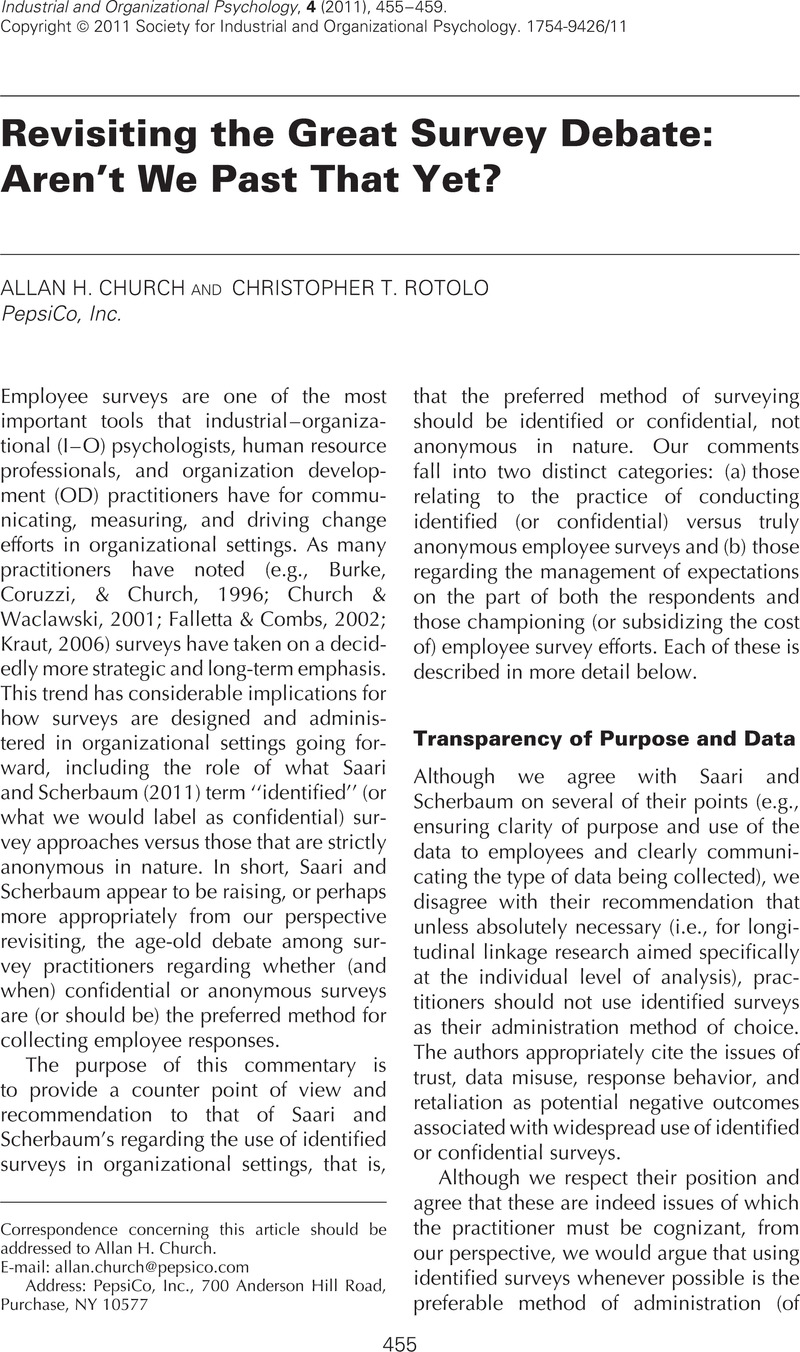Crossref Citations
This article has been cited by the following publications. This list is generated based on data provided by Crossref.
Ma, Xin
and
Luo, Wei
2008.
The Analysis of 6LowPAN Technology.
p.
963.
Scherbaum, Charles A.
and
Saari, Lise M.
2011.
Identified Employee Surveys: Where Do We Go From Here?.
Industrial and Organizational Psychology,
Vol. 4,
Issue. 4,
p.
487.
Church, Allan H.
Golay, Leslie M.
Rotolo, Christopher T.
Tuller, Michael D.
Shull, Amanda C.
and
Desrosiers, Erica I.
2012.
Research in Organizational Change and Development.
Vol. 20,
Issue. ,
p.
223.
Rotolo, Christopher T.
and
Church, Allan H.
2015.
Big Data Recommendations for Industrial–Organizational Psychology: Are We in Whoville?.
Industrial and Organizational Psychology,
Vol. 8,
Issue. 4,
p.
515.



